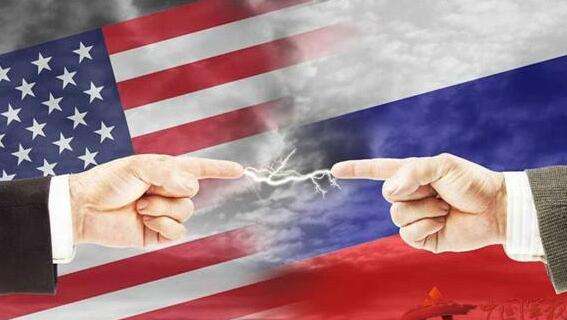
By Lan Shunzheng
Russian President Vladimir Putin visited Saudi Arabia on October 14 and discussed with Saudi leaders about bilateral cooperation and hotspot issues in the region. Putin's visit to Riyadh after 12 years indicated Russia's rising influence in the Middle East, as it tried to improve relations with regional countries while the US is seeing falling credibility and influence among its Middle East allies. Under the influence of major-country games, the Middle East will display a stronger tendency toward multi-polarization as various forces are being reshuffled.
In addition to promoting economic cooperation, Putin's visit to Saudi Arabia was also of great political significance. It came at a carefully chosen moment when the Middle East was going through an “eventful period”. Turkey launched a military operation code-named “Peace Spring” against the armed forces of Kurdish Workers' Party in north Syria on October 9; then the Iranian oil tanker Sabiti was attacked by a missile in the wee hours of October 11, causing tensions between Saudi Arabia and Iran. Putin said that Russia is willing to play a positive part in easing Saudi Arabia's strained relation with Iran.
What the US did has bitterly disappointed its allies in the Middle East. Since taking office, Trump has been trying to shake off burdens in the name of “America first”, and he is much less willing and able to interfere in matters of the region. As Washington is shifting its strategic focus from overseas to the homeland, it becomes indifferent to the situations of its allies. Moreover, its excessive partiality to Israel has infuriated the Middle East, where it no longer has any credibility as a peace mediator, not even with its close ally Saudi Arabia.
Recently the US has dumped the Kurdish armed forces in Syria and given a green light for Turkey to attack them across borders. To defend this decision, Trump tweeted that “Anyone who wants to assist Syria in protecting the Kurds is good with me, whether it is Russia, China, or Napoleon Bonaparte. I hope they all do great, we are 7,000 miles away!”Such words and deeds definitely made its allies, including Saudi Arabia, feel insecure and worried that they might be the next Kurd. Considering its discord with Iran and Yemen's Houthis, Saudi Arabia has to mend its relations with other out-of-region major countries and gain their support, Russia being a good choice.
Riyadh and Moscow hit it off so quickly, revealing Washington's weakening influence in the Middle East. In contrast, Russia has sound cooperative relations with Middle East countries in energy and military fields, and its aggressive anti-terror actions in the region and impartial stance on the Syrian issue and Palestine-Israel peace issue have left a better impression on the locals than America. Iran and Turkey are both approaching it, and the Astana Process led by the three of them has been viewed by the international community as the key to solving the Syrian issue. Now Russia arguably holds the balance in the Middle East.
If Moscow can win over Riyadh, a traditional ally of Washington in the Gulf region, , it will be able to further expand its influence in the Middle East, especially among US allies, which is obviously in its favor in the Russia-US game. In September this year, two of Saudi Arabia's oil facilities were attacked, but the pricey weapons it bought from the US proved unhelpful in the process, and Washington didn't take any effective countermeasures afterwards either. Taking this opportunity, Moscow expressed its willingness to provide assistance, saying that Saudi leaders only needed to make a wise decision, just like Tehran and Istanbul did in deciding to buy the S-300 and S-400 systems.
Seizing the opportunities brought by counter-terrorism, Russia is forming an “arc of influence” in the Middle East spanning from West Afghanistan to East Mediterranean. Going forward, Russia is expected to play more roles in the future, enhancing its clout in the Middle East.













